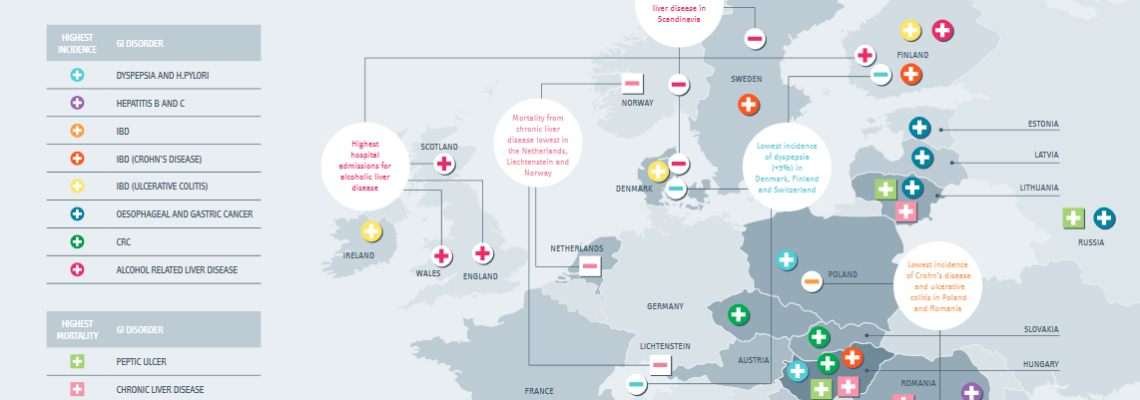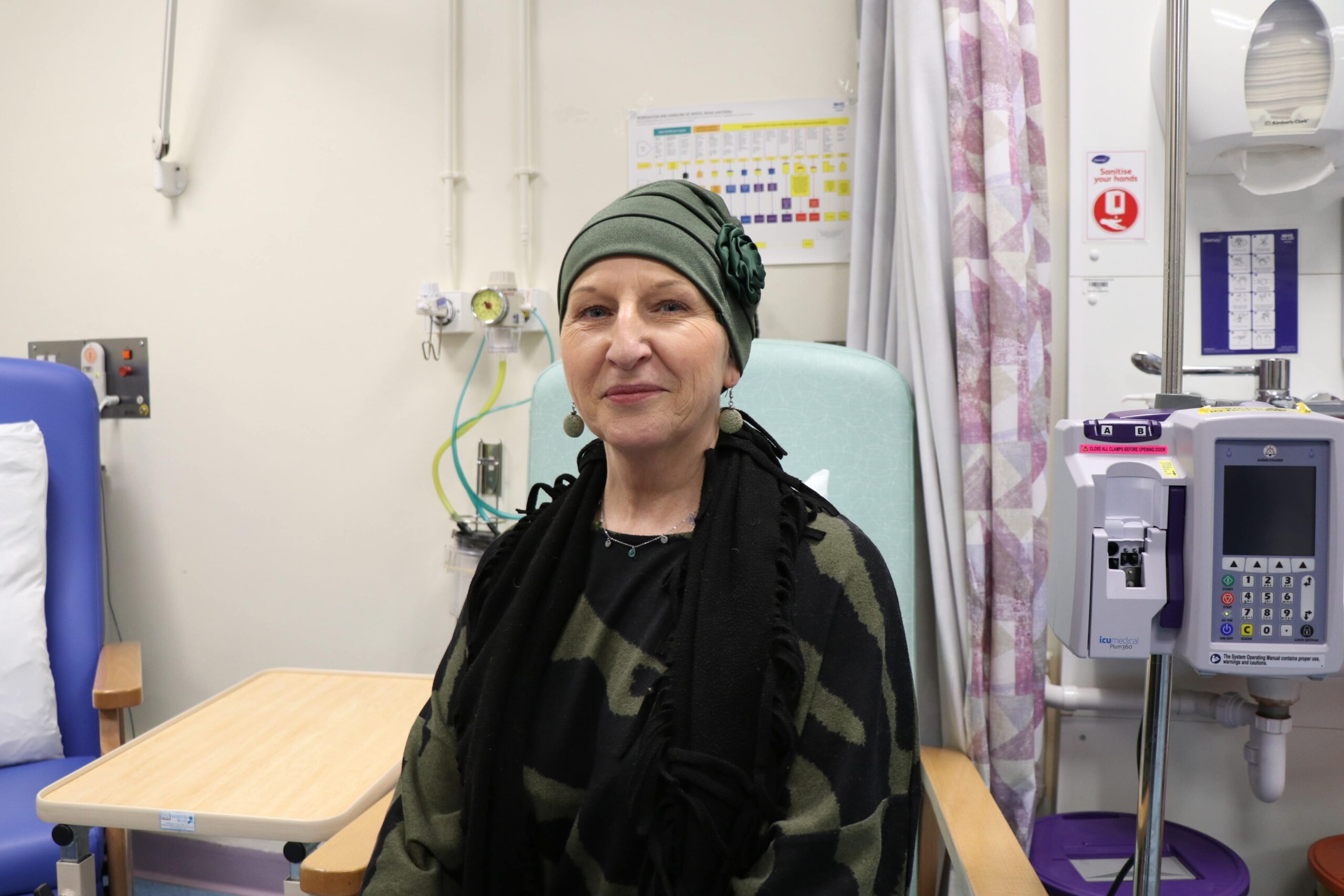
How to Choose a Top-Rated Gastroenterology Clinic in Europe
- January 30, 2025
- 0 Likes
- 33 Views
- 0 Comments
When navigating the complex landscape of healthcare in Europe, how to choose a top-rated gastroenterology clinic in Europe becomes a critical decision for healthcare professionals. Understanding the essential factors to consider when choosing a gastroenterology clinic in Europe can significantly impact patient outcomes. With numerous options available, identifying the best gastroenterology clinics in Europe requires careful evaluation of a clinic’s credentials and the expertise of its staff, particularly the top-rated gastroenterologists in Europe. This comprehensive guide will equip healthcare professionals with tips for selecting a gastroenterology clinic that not only meets high standards but also aligns with patient needs. By exploring essential considerations, such as researching patient reviews and testimonials, professionals can successfully identify top-rated digestive health clinics in Europe. Ultimately, this post outlines the best practices for selecting a gastroenterology center in Europe, helping to ensure the best possible care for patients requiring specialized digestive health services.
Understanding the Importance of Gastroenterology Clinics in Europe
Gastroenterology clinics play a crucial role in the healthcare landscape of Europe, addressing a wide array of digestive health issues that directly impact the quality of life for millions of individuals. These specialized centers focus on diagnosing and treating conditions related to the gastrointestinal (GI) tract, including but not limited to:
- Irritable Bowel Syndrome (IBS)
- Crohn’s Disease
- Ulcerative Colitis
- Gastroesophageal Reflux Disease (GERD)
- Liver Diseases
The significance of top-rated gastroenterology clinics in Europe cannot be understated, as they offer not only advanced medical procedures but also comprehensive care that encompasses preventive strategies, lifestyle management, and innovative therapies.
Key Benefits of Gastroenterology Clinics:
| Benefit | Description |
|---|---|
| Specialized Expertise | Clinics often employ top-rated gastroenterologists in Europe with extensive experience and specialized training in GI disorders. |
| Advanced Diagnostic Tools | High-quality clinics are equipped with state-of-the-art technology, enabling accurate diagnostics like endoscopies and imaging studies. |
| Multidisciplinary Approach | Many clinics rely on a team approach, combining the expertise of gastroenterologists, dietitians, and other specialists to ensure holistic care. |
| Cutting-edge Treatments | Facilities frequently use the latest advancements in medicine, including minimally invasive procedures to enhance patient outcomes. |
| Patient Education | They prioritize patient education about preventive care, treatment options, and lifestyle modifications which are essential for managing chronic conditions. |
As Europe experiences a rising prevalence of gastrointestinal diseases, the importance of selecting the right clinic becomes even clearer. These clinics not only provide immediate care but also serve as vital resources for ongoing health management and patient education. Consequently, understanding the importance of choosing a gastroenterologist in Europe must be prioritized for establishing effective treatment pathways.
Healthcare professionals need to recognize these nuances while considering best practices for selecting a gastroenterology clinic. By doing so, they can guide patients toward receiving optimal care, thus significantly improving treatment efficacy and patient satisfaction.

Key Factors to Consider When Choosing a Gastroenterology Clinic
Selecting the right gastroenterology clinic can immensely impact patient outcomes and satisfaction. How to Choose a Top-Rated Gastroenterology Clinic in Europe requires careful consideration of several essential factors. Below are key aspects healthcare professionals should evaluate:
1. Location and Accessibility
- Proximity to the clinic influences how easily patients can attend appointments.
- Evaluate transportation options, including public transport and parking availability.
2. Facility Accreditation
- Check if the clinic is accredited by relevant European healthcare organizations. This accreditation ensures that the facility meets established standards for care.
3. Availability of Specialized Services
- Determine if the clinic offers specialized gastroenterology procedures, such as endoscopy or colonoscopy.
- Look for clinics providing comprehensive care, including diagnostic testing and treatment protocols.
4. Expertise of Gastroenterologists
- Consider the qualifications and subspecialties of the gastroenterologists at the clinic.
- Review their experience in dealing with specific gastrointestinal conditions, which is crucial for high-quality patient care.
5. Patient-Centric Approach
- Evaluate how the clinic prioritizes patient comfort and communication.
- Reviews and testimonials often highlight facilities that excel in delivering compassionate care.
6. Insurance and Payment Options
- Check whether the clinic accepts various health insurance plans.
- Assess the availability of financing options for out-of-pocket expenses.
Comparison Table of Factors
| Factor | Details to Consider |
|---|---|
| Location | Proximity to public transport/accessibility |
| Facility Accreditation | Certification by recognized European bodies |
| Specialized Services | Availability of advanced procedures and tests |
| Expertise of Gastroenterologists | Qualifications, experience, and subspecialties |
| Patient-Centric Approach | Patient reviews, comfort measures, and communication |
| Insurance Acceptance | Coverage by major insurers and financing options |
In conclusion, best practices for selecting a gastroenterology center in Europe involve considering these factors comprehensively. By focusing on these elements, healthcare professionals can ensure they recommend the best gastroenterology clinics in Europe for optimal patient care.
Evaluating the Credentials of Gastroenterologists
When selecting the right medical care in the field of gastroenterology, it is crucial to evaluate the credentials of practicing gastroenterologists. This step ensures that patients receive treatment from qualified professionals who are skilled in diagnosing and managing digestive disorders.
Core Credentials to Consider:
- Education and Training:
- Verify that the gastroenterologist has completed medical school, followed by a residency in internal medicine.
- Confirm that they have pursued a fellowship in gastroenterology, which provides specialized training in this field.
- Board Certification:
- Check if the gastroenterologist is board-certified by relevant medical boards. This indicates that they have passed rigorous examinations and adhere to ongoing education standards.
- For instance, in Europe, the Board of European Specialists in Gastroenterology (BESG) oversees certifications in specific nations.
- Clinical Experience:
- Assess the years of practice the gastroenterologist has. Specialists with more extensive experience in specific procedures, such as endoscopic interventions, often have better patient outcomes.
- Investigate if they participate in continuing education and training programs to stay current with medical advancements.
Additional Factors to Investigate:
- Professional Affiliations:
- Look for memberships in prominent gastroenterological associations such as the European Society of Gastrointestinal Endoscopy (ESGE) or the European Crohn’s and Colitis Organisation (ECCO). These associations advocate for best practices and provide access to the latest research.
- Research and Publications:
- A gastroenterologist who actively engages in research or has publications in peer-reviewed journals demonstrates expertise and a commitment to advancing the field of gastroenterology.
- Patient Care Philosophy:
- Understanding a gastroenterologist’s approach to patient care, including their communication style and rapport with patients, can indicate how well they may align with a patient’s needs.
In summary, evaluating the credentials of gastroenterologists includes checking their education, board certification, clinical experience, professional affiliations, and contributions to research. By following these guidelines, healthcare professionals will be better equipped to recommend top-rated gastroenterologists in Europe and identify the best gastroenterology clinics in Europe for their patients’ needs.
Researching the Best Gastroenterology Clinics in Europe
When it comes to Choosing a Gastroenterology Clinic in Europe, thorough research is crucial. The landscape of healthcare is vast, and selecting from among the top-rated gastroenterology clinics in Europe requires careful consideration and analysis of various factors. Here are some effective methods to streamline the research process:
Utilize Online Resources
- Websites and Databases: Start by visiting accredited healthcare databases and websites specialized in gastroenterology. These platforms often provide comprehensive information about the best gastroenterology clinics in Europe.
- Professional Associations: Organizations such as the European Society of Gastroenterology often list top-rated clinics along with their specialties and services.
Explore Accreditation
- Regulatory Compliance: Check if the clinic adheres to European medical standards and is accredited by relevant medical boards. Accreditation ensures quality and reliability in service delivery.
- Certifications: Look for additional certifications that confirm the clinic’s expertise in Gastroenterology, such as those offered by the Joint Commission International (JCI).
Consider Technological Advancements
- Treatment Options: Research the range of treatment methodologies available at each clinic. Clinics that employ cutting-edge technology and minimally invasive procedures often yield better patient outcomes.
- Diagnostic Equipment: Investigate the types of diagnostic tools used by the clinic, as state-of-the-art imaging and testing equipment can greatly influence the effectiveness of diagnosis and subsequent treatment.
| Key Factors to Assess | Details |
|---|---|
| Accreditation | Compliance with European standards |
| Technological Resources | Availability of advanced diagnostic and treatment tools |
| Specialization | Focus areas such as inflammatory bowel disease, liver disorders, etc. |
| Research Involvement | Clinic’s participation in clinical trials or gastroenterology research |
| Staff Expertise | Qualifications and specializations of the medical team |
Network with Healthcare Professionals
- Referrals: Reach out to colleagues or industry experts who may have insights or firsthand experiences with notable clinics. Their recommendations can guide you toward the top-rated gastroenterologists in Europe.
- Online Forums: Engage in healthcare forums where professionals discuss and critique various clinics. These conversations can provide valuable insights into patient experiences and clinic reputations.
By methodically researching and evaluating these facets, healthcare professionals can confidently navigate the selection process, ensuring that they consider only the best practices for selecting a gastroenterology center in Europe. Ultimately, a well-informed decision leads to better healthcare outcomes for patients seeking gastroenterological treatment.

Exploring Patient Reviews and Testimonials
When considering how to choose a top-rated gastroenterology clinic in Europe, exploring patient reviews and testimonials can be instrumental. These insights from previous patients provide a more nuanced view of the clinic’s services and the quality of care offered by its practitioners. Choosing a gastroenterologist in Europe involves examining the experiences of others, which can reveal valuable information about the clinic’s strengths and weaknesses.
Why Patient Reviews Matter
- Real-Life Experiences: Patient testimonials reflect genuine experiences, offering potential patients a clearer picture of what to expect.
- Quality of Care: Reviews often highlight the level of care provided, including aspects such as patient interaction, wait times, and treatment outcomes.
- Trustworthy Insights: Seeing consistent positive feedback can build trust in the clinic’s reputation and services.
Where to Find Reviews
- Healthcare Websites: Platforms like Healthgrades, Zocdoc, and RateMDs compile reviews specifically for healthcare providers.
- Social Media: Many clinics have a presence on platforms like Facebook, where patients leave reviews and comments.
- Patient Support Groups: Engaging with communities focused on digestive health can yield firsthand accounts of different clinics.
Evaluating Reviews
When assessing patient testimonials, it’s essential to look for certain qualities:
| Factor | What to Look For |
|---|---|
| Consistency | Are there recurring themes in positive or negative reviews? |
| Detail | Do patients provide specific details about their experience? |
| Timeliness | Are the reviews recent, reflecting the current quality of care? |
Navigating Negative Comments
It is inevitable to encounter some negative reviews. It is important to:
- Analyze the Response: Consider how the clinic addressed the complaints.
- Identify Any Trends: Were there common issues raised by multiple patients?
- Weigh Against Positive Feedback: Look at the overall picture rather than focusing solely on outliers.
By thoroughly exploring patient reviews and testimonials, healthcare professionals can gain critical insights that guide their decision-making process. This in-depth approach enhances the search for the best gastroenterology clinics in Europe while ensuring that patients receive top-notch care tailored to their needs.
Locating Top-Rated Digestive Health Clinics in Europe
Finding top-rated digestive health clinics in Europe requires a strategic approach that combines thorough research and a keen eye for detail. Healthcare professionals, including doctors and nurses, can significantly enhance patient outcomes by guiding them towards quality gastroenterology services. Here are effective methods to locate these esteemed clinics.
Online Research
- Medical Directories: Websites like Healthgrades, RateMDs, and WhatClinic provide comprehensive listings of gastroenterology clinics, including ratings and reviews from former patients.
- Professional Organizations: Organizations such as the European Society of Gastroenterology (ESGE) can lead healthcare professionals to reputable clinics and specialists within Europe.
Recommendations from Peers
Asking colleagues for tips for selecting a gastroenterology clinic can yield valuable insights:
- Word-of-Mouth: Healthcare professionals often have firsthand experiences or knowledge about clinics excelling in digestive health.
- Networking: Utilize professional networks and conferences to gather recommendations on the best gastroenterology clinics in Europe.
Proximity to Top-Rated Gastroenterologists
Researching the clinic’s associated specialists is crucial:
- Top-rated gastroenterologists in Europe typically work at renowned institutions. Look for their credentials, focusing on board certifications and areas of expertise in digestive health.
- Evaluating the specialization of the clinic can uncover unique services they offer, such as advanced treatments for specific gastrointestinal conditions.
Consider the Facility’s Technology and Resources
Evaluating a clinic’s infrastructure is key in ensuring they provide modern treatments:
- Advanced Equipment: Facilities using cutting-edge technology can offer better diagnostic and treatment options.
- Research Initiatives: Clinics actively engaged in research often provide the latest in gastroenterology advancements.
Utilizing Online Forums and Social Media
Online communities can be a valuable source of information:
- Patient Testimonials: Platforms like Yelp or Facebook offer reviews where patients share experiences about their care, helping to locate top-rated digestive health clinics in Europe.
- Expert Blogs and Videos: Many professionals share valuable insights and recommendations through their blogs or YouTube channels, highlighting exceptional clinics and their services.
By implementing these strategies and considering the factors to consider when choosing a gastroenterology clinic in Europe, healthcare professionals can ensure their patients receive exceptional care from best practices for selecting a gastroenterology center in Europe.
Best Practices for Selecting a Gastroenterology Center
Selecting a gastroenterology clinic in Europe involves thorough research and consideration of several factors to ensure that patients receive the best possible care. Implementing the best practices for selecting a gastroenterology center can significantly impact treatment outcomes. Here are some essential strategies for healthcare professionals to keep in mind:
1. Assess Specialization and Services Offered
Each gastroenterology clinic may specialize in different areas of digestive health. Therefore, it is crucial to identify clinics that provide the specific services required. Consider the following specialties:
| Specialty | Description |
|---|---|
| Hepatology | Focuses on liver diseases, including hepatitis and cirrhosis. |
| Endoscopy | Specializes in procedures using a scope to examine the digestive tract. |
| Inflammatory Bowel Disease (IBD) | Dedicated care for conditions like Crohn’s disease and ulcerative colitis. |
| Oncology | Targets cancers of the digestive system, including colorectal cancer. |
2. Evaluate Facilities and Technology
Look for clinics equipped with the latest technology and facilities. Advanced medical equipment often leads to better diagnostic accuracy and treatment efficacy. Ensure the clinic offers:
- State-of-the-art imaging technology
- Screening and diagnostic procedures
- Minimally invasive surgical options
3. Review Insurance Acceptance
Verify whether the clinic accepts the patient’s health insurance plan. This step can prevent financial burdens and ensure patients receive the necessary care without excessive out-of-pocket expenses.
4. Consider Location and Accessibility
The geographic location of the clinic plays a vital role in accessibility. A conveniently located clinic minimizes travel times and logistical complications, encouraging patients to attend regular check-ups and follow-up appointments.
5. Investigate Multidisciplinary Collaboration
A top-rated gastroenterology clinic in Europe typically collaborates with various specialties. This collaborative approach ensures comprehensive care for patients with complex health issues. It is beneficial to check whether the clinic has established relationships with:
- Primary care physicians
- Nutritionists
- Surgeons in related fields
6. Prioritize Recommendations and Referrals
Gather recommendations from trusted colleagues and healthcare professionals. Personal referrals can provide insights into the quality of care, patient satisfaction, and overall clinic reputation.
In summary, navigating the selection process for a gastroenterology clinic in Europe involves meticulous evaluation and adherence to best practices for selecting a gastroenterology center. By employing a structured approach and considering the factors outlined above, healthcare professionals can successfully aid patients in choosing the most appropriate and effective gastroenterology clinic for their needs.

Frequently Asked Questions
What factors should patients consider when selecting a gastroenterology clinic in Europe?
When selecting a gastroenterology clinic in Europe, patients should consider several key factors including the clinic’s accreditation, the qualifications and experience of the medical staff, the availability of advanced medical technology and treatments, and the clinic’s reputation through patient reviews and success rates. Additionally, it’s important to assess the location and accessibility of the clinic, as well as the availability of supportive services such as nutritionists or therapists who specialize in gastrointestinal health.
Are there specific countries in Europe known for their top-rated gastroenterology clinics?
Yes, several countries in Europe are renowned for their high-quality gastroenterology clinics. Countries such as Germany, Switzerland, and the United Kingdom are often highlighted for their advanced healthcare systems and leading medical facilities. These countries house clinics that are equipped with cutting-edge technology and staffed by expert specialists, offering patients a range of innovative treatments. Furthermore, locations like France and Spain are also praised for their patient-centered approaches and comprehensive care paths, making them popular destinations for gastroenterological treatments.
How can patients verify the credentials of a gastroenterology clinic?
Patients can verify the credentials of a gastroenterology clinic by researching its accreditation from recognized healthcare quality organizations. In Europe, credible clinics should have certifications from organizations such as ISO or the Joint Commission International (JCI). Additionally, patients can look into the backgrounds and qualifications of individual practitioners, including their medical degrees, subspecialty training, board certifications, and years of experience in the field. Reading testimonials and reviews from former patients can also provide insight into the quality of care and experiences with the clinic.
What are the typical services offered by top-rated gastroenterology clinics?
Top-rated gastroenterology clinics typically offer a wide range of services aimed at diagnosing and treating gastrointestinal disorders. These services may include advanced diagnostic procedures such as endoscopy, colonoscopy, and imaging studies like MRI and CT scans. In addition, clinics may provide various treatment options ranging from medication management to minimally invasive surgical procedures. Many premier clinics also emphasize holistic care by including services like nutritional counseling, mental health support, and ongoing follow-up care, ensuring comprehensive management of patients’ gastrointestinal health.



Leave Your Comment